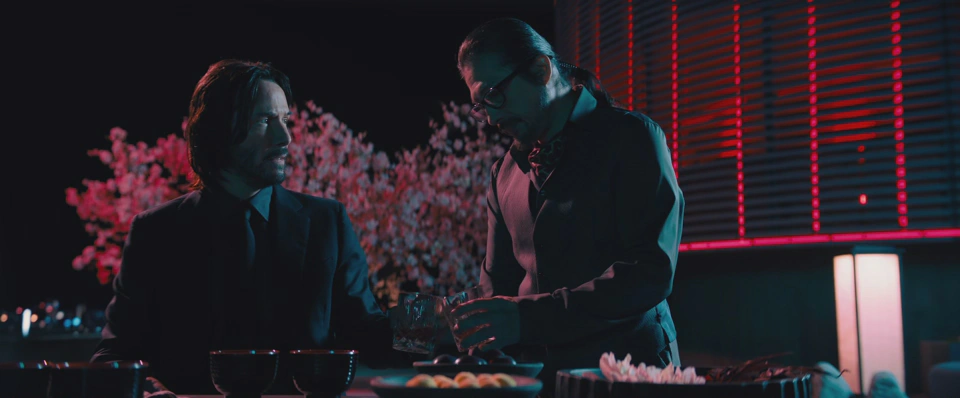SPOILER ALERT!
The High Table is trying to kill John for being the opposite of Swiss and ignoring rules, and the only way John can survive is by killing one of the High Table’s members, the Marquis, which would automatically settle his debts to the people in power. John ends up killing the Marquis but also ends up dead.
Compared to the prequels, I found Chapter 4 the most visually stunning and I enjoyed the various motifs repeated through the movie like the gold on grey, the Western royal luxury around the Marquis, the sunrises, and the “underground” composite theme of subways, clubs, neon lights, to name a few. The strong contrasts between scenes were also refreshing.
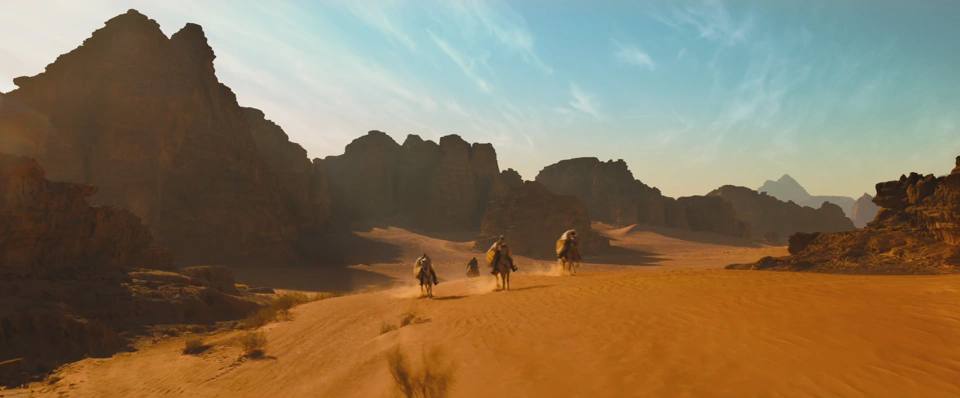
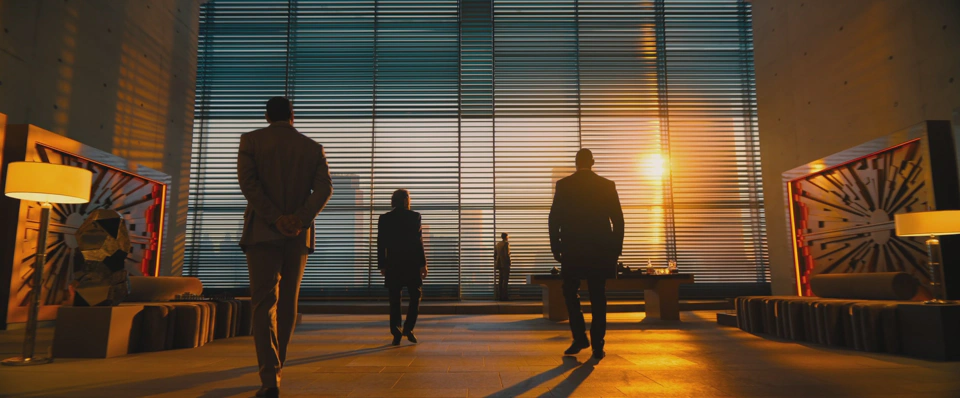
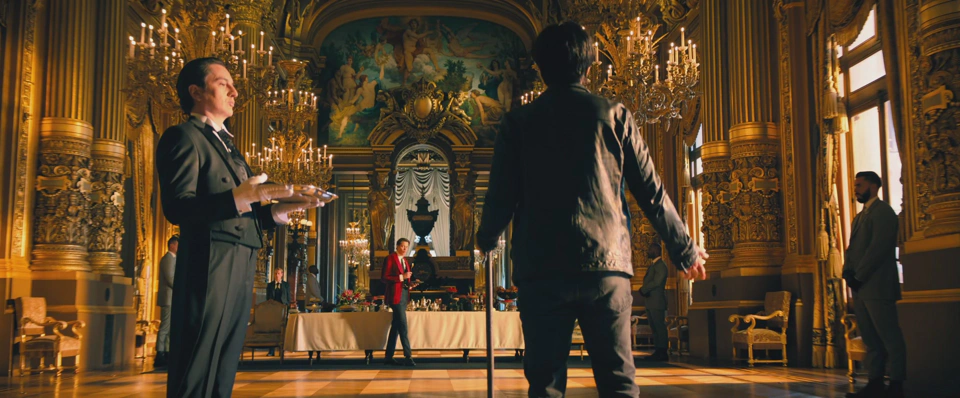
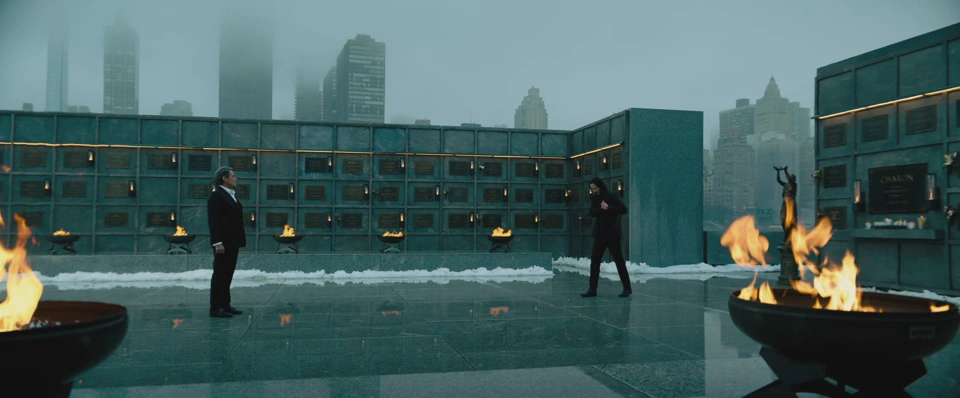
For a movie that’s essentially one man killing hundreds of people in different ways, I laughed a lot. There were more “this doesn’t quite make sense” plot points than I remember in the prequels, but it was easy to suspend the disbelief and get sucked back into the story.
The score was, like in the prequels, amazing. It all sounded like John Wick, but each scene felt slightly different: both familiar and resh.
Fight scenes
I also enjoyed the wide variety in the fight scenes: new weapons like nunchakus, ranged and melee bows and arrows, shotguns with explosive ammunition, and duel pistols; new settings like Osaka and Paris; and new ways to show a fight like the video game-like top-down view in the old French house. Each fight scene felt unique and interesting, specially my favorite, the Arc de Triomphe.
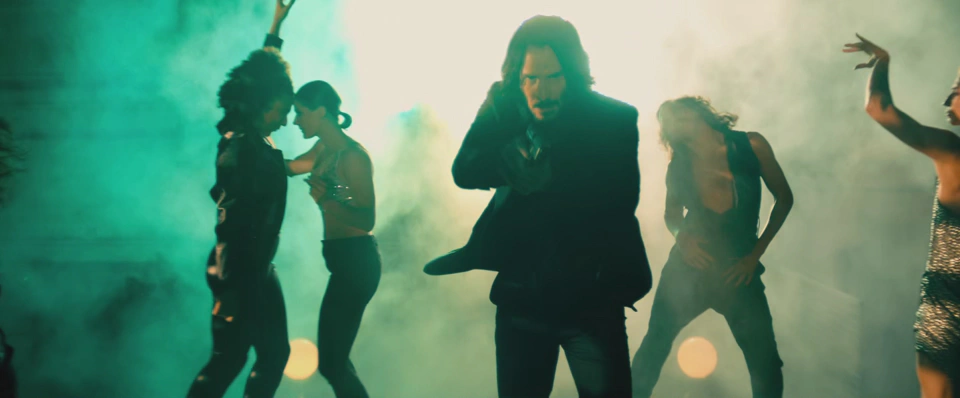
The fight with Killa Harkan was also really fun. Killa and John survive inhuman levels of damage, but Killa feels like an undead monster, coming back up no matter the amount of physical punishment he takes. What made him even more memorable was the combination of his strength, martial arts-level of flexibility with his legs, and his asthma. He only gets killed after being thrown down several floors and landing on his neck.
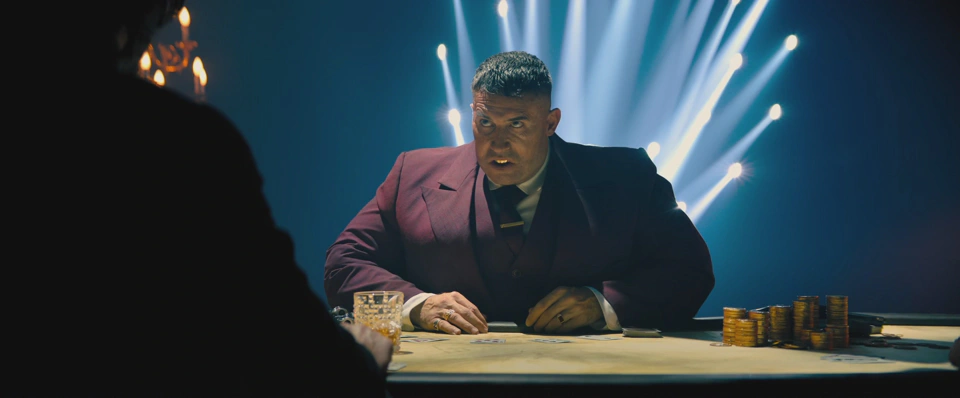
The fight scene on Montmartre, before the final duel in front of the Basilique du Sacré-Cœur, was torture. I was constantly thinking that John was going to be late and Winston would get killed, and when I have nightmares, it’s normally because I’m late to take a bus or a train. Anyways, John has to kill dozens of enemies to climb up to the top of the stairs, but then he gets kicked all the way down to the beginning. I was tempted to fast-forward to stop the psychological torture.
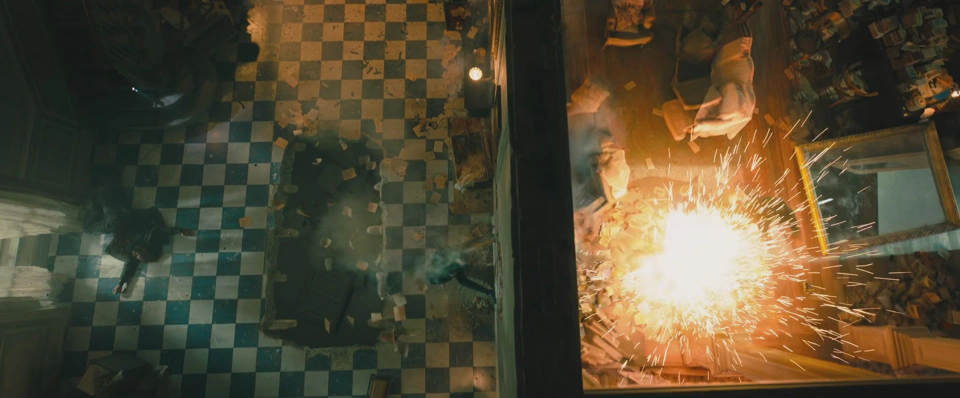
Meaning
At one point the Marquis tells his right hand that he trusts Caine to kill John because Caine has something to live for, die for, and love, whereas John has none of those three things. Sounds reasonable. In the end John definitely dies, but in the final scene the movie hints at Caine also dying, so I guess the message here is that we all die whether we have a reason to live or not.
One of the movie’s messages is that you can’t change who you are. John and Caine, one of the villains, have always been killers and the message that they can’t be anything else is repeated a few times. I disagree. Changing habits requires energy, and age makes it require even more energy, but if there is a will, there is a way.
Earlier in the movie, John says he would like to have “Loving husband” written on his tombstone. He may be a killer, but his most precious possession seems to be his love for his wife who died in the first movie. When I think of my death or the death of the people I love most, and how I will feel love then, it feels like an insignificant thing in the infinity of time and space and transient, but it also feels stronger than anything and permament in a certain way as if, by being felt, that emotion gets imprinted forever in the records of reality and that’s enough.
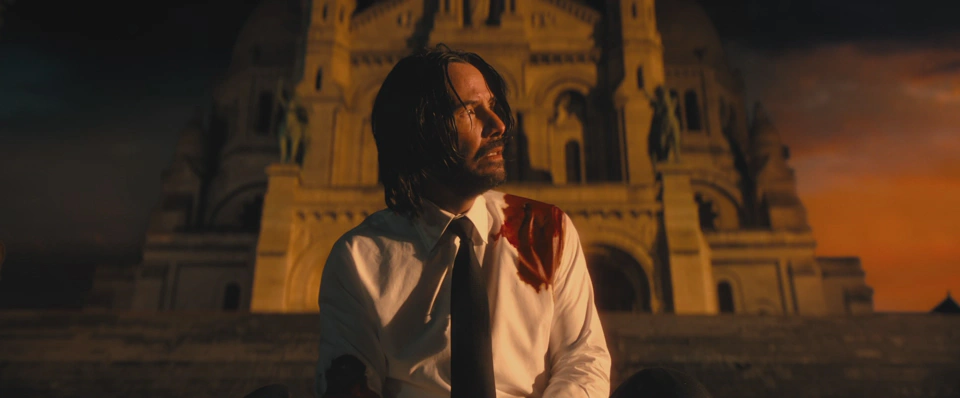
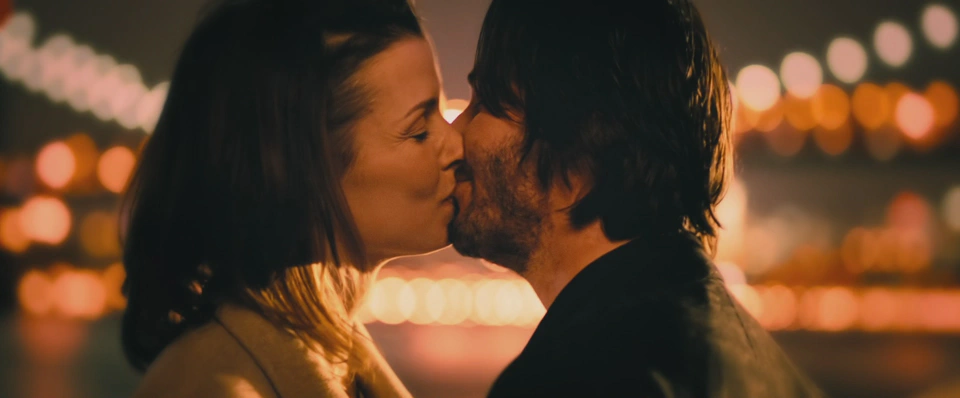
Connections
- Paranoia : actually, no, everyone really is out there and wants to kill you.
- Bullet Train movie: another violent and very funny action movie set in the present day, but Bullet Train takes place entirely within a Japanese bullet train.
- Social hierarchies: no one is above the High Table (rules), although John kills the one person above the High Table in the first fight scene… Nature seems to side with John: too much rigidity within social systems makes them more fragile.
- Osaka: reminded me of my first trip to Japan, Umeda Station. Ahhh, the memories.
- Paris: memories of my childhood studying French in school, also reminded me of a trip to Paris where it felt like the whole city was an art museum.
- Personality, identity, habit changes: The Power of Habit, alcoholics anonymous, samskaras. Consciousness vs personality and what our true identity is.
- Love: revenge may have moved John since his wife was killed, but his last thought before dying was his love for her.
- Life after death: Are we just a glorified vehicle to pass on genes, or are we more than that? At some point John lits a candle for Hellen. Caine tells him that “when we’re dead, we’re gone,” but John isn’t sure. I feel the same. I have an engineering and scientific view of the world that makes me believe consciousness is a byproduct of the brain. At the same time, I dedicate more than an hour a day to a spiritual practice that states that consciousness is eternal.
- Friendship: I’ve been traveling and felt out of place for most of my adult life, which makes it hard to build and maintain deep friendships. On the one hand, it feels freeing because you have fewer attachments and therefore fewer sources of pain, but, on the other hand, it feels like without the pain you’re missing out on something essential to life. Still struggling with this one as it relates to vipassana and the role of emotions.
- Sketchnoting: the tracker, Nobody, sketches in his notebook. Sketchnoting = catnip.
- Story: Substance, Structure, Style, …: a few times during the movie my mind became aware of how much fun it was having. It tried to find out why and tools from this great book came up.
- Mario Kart 8: for the Arc de Triomphe scene with constant incoming traffic.
- Overcoming challenges / Diablo 3 and 4 videogames: I’m increasingly disinterested in violence but this movie is about a man who is constantly killing other men. Why did my mind enjoy it? I think it’s more about the constant overcoming of threatening challenges. Nature probably selected for this trait because it helped caveman Juan and Juana pass their genes.
